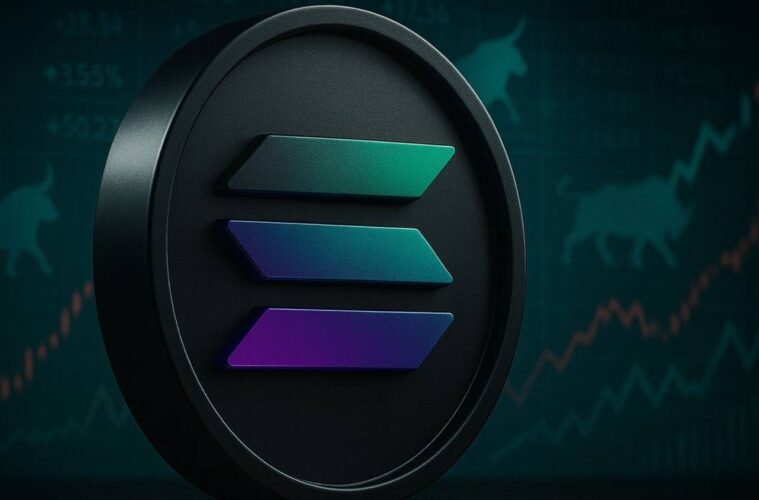In 2025, Solana has become the heart of one of blockchain’s most competitive battles: the “launchpad wars.” What began as a wave of memecoin launches has expanded into a broader contest about fairness, legitimacy, and adoption. The competition is not simply over who can produce the most tokens, but which platforms can design systems communities will trust enough to embrace long-term.
Every launchpad embodies a different approach. Some maximize raw output, others redistribute value, and newer entrants center fairness. Solana’s unmatched speed, negligible fees, and high throughput make it the perfect environment for these competing models to flourish side by side.
From Pump.fun’s nonstop launches to SeedList’s fairness-driven allocations and Token Mill’s gamified mechanics, Solana has become the proving ground for token distribution. Communities move quickly, gravitating toward platforms that provide transparency, trust, or inventive engagement.
Leadership in Constant Flux
Dominance in Solana’s launchpad scene is fleeting, as communities migrate toward platforms that offer stronger legitimacy and participation.
- Pump.fun reclaimed its lead after a short decline, producing millions of launches and generating hundreds of millions in fees. It remains the cornerstone of Solana’s memecoin culture.
- LetsBonk.fun peaked earlier this summer at over 20,000 daily launches. Its BONK burn model and points incentives briefly gave it control before fading by mid-August.
- HeavenDex stood out with redistribution, burning fees and channeling value back into the ecosystem. Its bold model won attention, though its long-term durability remains uncertain.
- Token Mill, which launched in late August, gamified the process with “King of the Mill” contests. By making distribution competitive, it gave tokens prestige and visibility.
- SeedList shocked the ecosystem with 100,000 sign-ups in its first day. Its fairness-based allocations presented a model for trust-driven adoption, setting it apart from chaotic alternatives.
- Others such as BAGS, Moonshot, BelieveApp, and JUP Studio enrich the field with no-code tools, AI-powered pricing, and customizable bonding curves.
This shifting balance highlights how rapidly leadership changes when communities prioritize fairness and trust.
Survival Beyond the Launch
Raw totals reflect activity, but graduation rates—the share of tokens that evolve into active ecosystems—measure true adoption.
Pump.fun dominates in sheer volume, producing tens of thousands of launches daily. While many disappear quickly, its activity keeps Solana buzzing.
LetsBonk.fun distinguished itself at its peak with strong graduation rates, advancing hundreds of tokens into circulation each day. Its incentive-driven model temporarily created sustained adoption.
HeavenDex processed tens of millions in daily activity, showing redistribution resonates, though sustainability remains uncertain.
Token Mill sustains interest through gamification. Tokens that win competitions gain cultural prestige, encouraging adoption and loyalty.
SeedList, however, emphasizes trust. Its fairness-driven allocations give communities confidence that launches are transparent, leading to stronger adoption curves over time.
Graduation on Solana is not simply a metric—it is the measure of trust. SeedList reframes it as a proof point of legitimacy.
SeedList as the Model for Trust-Driven Adoption
Amid Solana’s battle, SeedList has emerged as the model for trust-driven adoption. By eliminating insider advantages and blocking bots, it ensures launches are accessible and transparent.
The impact was immediate. Within 24 hours, 100,000 people joined SeedList’s Telegram community, signaling that fairness-based adoption is not just an idea but a demand.
SeedList thrives because Solana provides the infrastructure to scale fairness. With low fees and instant settlement, inclusivity is not undermined by congestion. On other blockchains, participation often collapses under high costs or slow speeds; on Solana, adoption is sustained.
But SeedList is about more than equitable launches. By anchoring trust at the beginning, it ensures communities remain engaged well beyond the initial distribution. This loyalty transforms projects into long-term ecosystems rather than fleeting tokens.
SeedList complements the broader ecosystem. Pump.fun defines mass memecoin experimentation, LetsBonk.fun showcased incentive mechanics, HeavenDex pioneered redistribution, Token Mill gamified launches, and SeedList provided the model for trust-driven adoption.
If SeedList’s approach holds, adoption based on fairness may become the standard across Solana’s ecosystem.
Solana as the Foundation of Trust in Adoption
The scope of Solana’s launchpad battle underscores its importance globally. Tens of thousands of launches happen daily without clogging the system or raising costs, proving Solana can host adoption at a scale no other blockchain can match.
Its supporting infrastructure enhances this role. Wallets like Phantom, support for MetaMask and TrustWallet, liquidity from decentralized exchanges, and developer SDKs give creators and communities the tools they need for trust-driven participation.
This makes Solana more than a launch environment—it is the foundation of adoption rooted in trust. Pump.fun’s scale, LetsBonk.fun’s incentive programs, HeavenDex’s redistribution, Token Mill’s gamification, and SeedList’s trust-first model are setting norms across the industry.
CryptoSheldon, Solana developer and SeedList co-founder, summed it up: “Solana has become the blockchain of trust. Its scalability and efficiency allow builders to innovate constantly, and that culture of fairness and trust will drive token adoption globally.”
The takeaway is clear. Platforms that fail to innovate or neglect fairness will lose ground, while those that embed trust into their models will thrive. With its unmatched scale and cultural momentum, Solana is not just hosting a launchpad battle—it is shaping the trust-driven adoption that blockchain’s future depends on.

